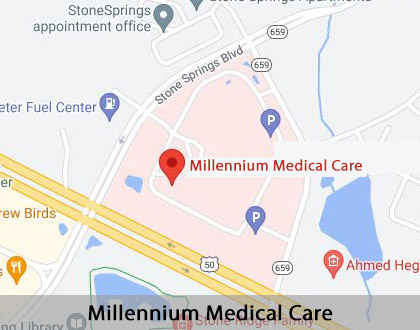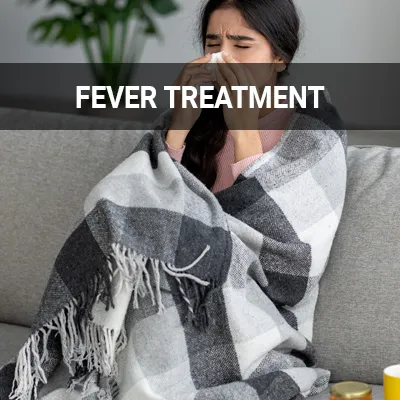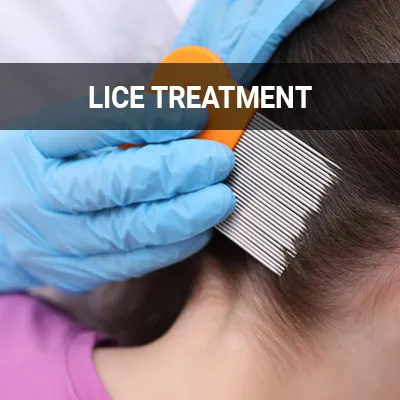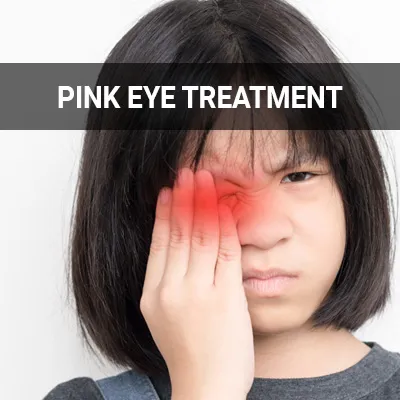Pediatric Care Sterling, VA
Minor injuries and illnesses are simply part of being a child. There is no need for medical assistance with minor cases since it is possible to treat them at home. However, it is important to be able to determine the difference between a minor injury or illness and one that is more severe.
Pediatric care is a specialty medicine, with doctors trained specifically to treat the needs of children and young adolescents. Pediatric care is available at Millennium Medical Care Stone Springs in Sterling and the surrounding area. Our pediatric urgent care center can discuss the severity of the child's symptoms, injury, or illness, and ensure they receive proper treatment.
Call us at (703) 665-3242 to visit our urgent care center for an evaluation and treatment today.
When Urgent Care is Needed
While preventing a child from getting injured or falling ill is the most ideal way to protect the child's health, it is not always practical. Injuries and illnesses can happen regardless of preventive measures. Therefore, determining when pediatric care is needed can help ensure the child has the best chance at making a quick recovery.
If a child suffers from an injury or illness with symptoms that are severe or last for more than several days, they may have an underlying condition that we can diagnose early. They may also have recurring symptoms or fall sick too frequently, indicating a need to strengthen their immune system. We will discuss the possibilities and the appropriate measures to be taken for each individual child.
Most Common Childhood Illnesses According to WebMD
- Ear infections, colds, and stomach bugs are the most common childhood illnesses
- Respiratory syncytial virus is the most common respiratory illness that causes hospitalization in young babies
- Fifth disease is most common in children between the ages of five and 15
- Hand, foot and mouth disease is most common in children under the age of five, but it is not usually serious if treated early
- Scarlet fever is a bacterial infection that results from group A strep
- Impetigo is a serious concern in young children after contact with staph or strep bacteria
- Whooping cough is most common in young children, and it can be serious if not treated early
- Croup is mostly seen in children as well; it is caused by a virus and affects the windpipe and voice box
“If a child suffers from an injury or illness with symptoms that are severe or last for more than several days, they may have an underlying condition that we can diagnose early.”
Illnesses That Require Pediatric Urgent Care
It is normal for children to experience minor illnesses such as the common cold, and they are often able to fight off the infection with little to no medical assistance. However, more serious illnesses may require urgent care to ensure that the symptoms do not begin to worsen or last longer than necessary. The most common illnesses that require immediate care are colds, flus, allergies, and stomach illnesses.
The Common Cold or Flu
A minor case of the common cold or flu does not necessarily need immediate medical attention, especially if there is no fever present. However, a cold or flu case that lasts more than several days without improving or symptoms that become severe may need medical assistance. If there is any doubt over whether a child's symptoms are normal, we can help determine the urgency.
Allergies/Allergic Reactions
Additionally, any illness that results from allergies or an allergic reaction may require pediatric care at an urgent care to ensure the symptoms do not worsen, especially for shortness of breath. Unfortunately, children do not know what they are allergic to until they experience it, which means that, as a parent, it is crucial to keep a close eye out for allergic reactions.
Stomach Illnesses
Lastly, stomach illnesses may require immediate treatment since the symptoms can be alarming and painful. If a child suffers from a stomach illness, such as food poisoning, a stomach virus, or any other illness that involves vomiting and diarrhea, visit us right away. Stomach illnesses that include a fever require immediate urgent attention, especially in children.
“The most common illnesses that require pediatric urgent care are colds and flus, allergies, and stomach illnesses.”
Injuries That Require Pediatric Urgent Care
Much like illnesses, minor injuries, such as scrapes, minor bruises, and mildly sprained ankles, there is no need for medical assistance. While it is possible to treat pain and symptoms with at-home remedies and proper first aid care. However, more serious injuries, such as cuts, deep bruises, and severe muscle strains, need professional treatment at a pediatric urgent care facility.
It is essential to receive immediate treatment or at least an examination to determine the full extent of the patient's injury. This way, we can help ensure the child receives the proper care they need. Three types of cases in which pediatric urgent care is needed to ensure proper care include severe sprains and strains, head injuries, and cuts or burns.
Severe Sprains and Strains
One of the most common injuries children suffer is sprains and strains, especially if they are constantly outdoors or participate in sports. While minor sprains and strains are normal and do not need medical assistance, more serious sprains and strains, such as a high ankle sprain or pulled hamstring, may need urgent care to ensure an accurate diagnosis and proper treatment.
Head Injuries
Any head injury that your child suffers needs to be properly examined by a medical professional, especially if there is a possibility of a concussion. Head injuries are among the most serious common injuries that children can sustain, and treating the head injury correctly and urgently is essential in preventing any possibility of long-term damage.
Cuts and Burns
Lastly, a cut or burn of any kind may need to be treated at an urgent care facility, as improper treatment can lead to an increased risk of infection. While a minor scrape can be treated at home with first aid supplies, cuts and burns need to be properly assessed by a medical professional to determine the severity and if any stitches, ointments, or medications need to be administered.
Check out what others are saying about our services on Yelp: Pediatric Care in Sterling, VA
Severe Symptoms Indicating a Need for Urgent Care
Understanding more severe symptoms can give parents a better understanding of what injuries and illnesses require urgent care. After an injury or illness occurs, there are generally four options: home treatment, primary care physician, urgent care, or emergency room.
Here at our urgent care facility, we are able to treat most injuries and illnesses that are not life-threatening or require surgery. For example, if a child falls ill and needs immediate medical attention to get the symptoms under control but the symptoms are not life-threatening, we can treat it here at our urgent care facility.
Additionally, we are able to treat any injury that does not require immediate surgery. As such, a severe sprain or strain, minor bone fractures, and small cuts and burns can be treated effectively and efficiently by our staff. However, deep cuts that are life-threatening, comminuted fractures that need immediate surgery, and head injuries that result in loss of consciousness need immediate treatment at an emergency room with hospital access.
The most difficult determination for most parents to make, however, is whether the illness or injury can be treated at home or is best left to a medical professional. While home treatment can be tried initially in most cases, if the symptoms become more severe or last for longer than expected, consult with us or visit our pediatric urgent care facility in order to ensure proper treatment is administered.
“After an injury or illness occurs, there are generally four options: home treatment, primary care physician, urgent care, or emergency room.”
Questions Answered on This Page
Q. When should a child be taken to urgent care?
Q. What are common illnesses that require urgent care?
Q. What injuries require pediatric urgent care?
People Also Ask
Q. What is the difference between the common cold and flu?
Q. What are the different types of allergies?
How Pediatric Urgent Care Works
Generally, our urgent care facility treats children who suffer a serious injury or fall seriously ill and cannot wait for an appointment. Since we do not require an appointment, you are able to receive treatment the same day after a short wait in the waiting room. If you want to minimize the wait time, we accept appointments as needed.
After a short wait, a member of our medical staff will call the child back to examine their injury or illness, documenting all symptoms, medical history, and previous treatment. After gathering as much useful information as possible and running any necessary tests, our medical staff will examine the information and use it to make an accurate diagnosis.
For serious injuries, the diagnosis is fairly obvious, and most time is spent on controlling and treating the initial symptoms, typically including pain management. After a diagnosis is made for an illness, treatment options will be discussed and decided upon based on what works the fastest and most effectively, as well as the child's personal preference. Additionally, our staff will be able to answer any questions about the diagnosis and treatment process.
On many occasions, there is not a need for a secondary visit, and the treatment can be administered in the comfort of your own home. However, for more serious illnesses and injuries, a follow-up visit is recommended. Also, if symptoms do not improve from treatment, give us a call and we can discuss a better form of treatment. However, in most cases, children are likely to make a full recovery without a second visit.
Questions to Ask Your Urgent Care Provider
- What caused the illness that my child is experiencing?
- Is my child contagious? Does my child need to stay home from school due to the illness?
- Are there any medications you can prescribe? If so, are there any side effects?
- What tests will you run on my child before diagnosis?
- How long does my child’s illness or injury usually take to recover?
- What should I do if my child’s symptoms do not improve within a few weeks after treatment begins?
- Is there anything I can do to help my child feel better while they recover?
- Is there a way for my child to continue their schoolwork, or do they need to rest before they recover?
- What signs should I look for that are serious after my child’s head injury?
- What will I need to properly clean my child’s burn or cut wound?
- How often should I apply ice and give my child pain relief medication for their sprain or strain?
- How can I prevent my child from getting injured or getting sick in the future?
Frequently Asked Questions
Q. What are immunizations? How do I know what immunizations my child needs?
A. Immunizations, often referred to as vaccines, are a form of preventive treatment, usually in the form of an injection, where a small sample of a particular substance is placed into the body in order for the body to learn how to fight it off. By being able to fight off the infection, it builds up an immunity to the substance, meaning it is no longer affected by the substance and can easily fight it off in the future. In order to determine what all immunizations are needed in children, come in for a visit or give our urgent care facility a call.
Q. My child is sick, but she seems to be okay. How do I know if I should take her to urgent care or not?
A. For most minor illnesses, you can provide treatment at home, which typically includes over-the-counter medication, rest and staying hydrated. However, if they have symptoms that begin to worsen despite home treatment, be sure to seek medical assistance to get the symptoms under control. Additionally, any illness that lasts for more than several days requires urgent care to ensure that the illness is not causing more discomfort than necessary. If there is ever a concern for any other reason, do not hesitate to visit urgent care. After all, it is better to be safe than sorry.
Q. What precautionary measures should I take to prevent my child from getting sick?
A. Preventing illness is not always possible. However, there are certain precautions you can take to minimize the risk. First and foremost, teach your child to practice good hygiene, such as washing their hands several times each day, not rubbing their hands on their face and not using their hands to cover their mouth when they sneeze. After all, germs in the form of bacteria or a virus are the main cause of illness. If your child can prevent germs from entering the body, your child has a much better chance to stay healthy.
Q. I am worried about my child's head injury. Will there be any long-term consequences?
A. In most cases, a head injury, particularly a concussion, does not lead to long-term complications, as long as proper treatment is administered when the signs are first noticed and they do not become chronic. Therefore, there is no reason to worry about your child's head injury if they seem okay and you know they were properly looked after. However, in the event that several head injuries occur within a short amount of time, it may be a good idea to consider lifestyle changes, as it can pose a long-term risk.
Q. I am not sure what I can take my child to pediatric urgent care for. What can and cannot be treated at your urgent care facility?
A. In essence, any injury or illness that requires immediate care that is not life-threatening can be treated here at our urgent care facility. Additionally, we are able to administer preventive care, including vaccinations, laboratory testing and much more. If the injury or illness is life-threatening, however, it is best to take your child to an emergency room that has access to surgery and hospitalization. If there is any concern about what care is needed for your child, give us a call for guidance.
Start Feeling Better – Visit Us Today
By visiting us as soon as possible, our team can help get you the professional treatment you need. Instead of waiting around and allowing the symptoms to get worse, we can provide you with stronger medication and treatment options instead of ineffective store-bought products.
Definitions
Come In Today
To ensure pain, discomfort, and symptoms do not worsen or last for longer than necessary, consult with us or come in for a visit to our urgent care. If you are concerned about your child's illness or injury and want to schedule an examination, call us at 703-665-3242.
Helpful Related Links
- American Journal of Medicine. American Journal of Medicine. 2023
- American Medical Association (AMA). American Medical Association (AMA). 2023
- American Medical Society For Sports Medicine (AMSSM). American Medical Society For Sports Medicine. 2023
- American Trauma Society. American Trauma Society. 2023
- John Hopkins Medicine Orthopaedic Surgery. John Hopkins Medicine Orthopaedic Surgery. 2023
- National Council on Aging. National Council on Aging. 2023
- Orthopaedic Surgery: Association of American Medical Colleges. Orthopaedic Surgery: Association of American Medical Colleges. 2023
- Radiological Society of North America. Radiological Society of North America. 2023
About our business and website security
- Millennium Medical Care Stone Springs was established in 2023.
- We accept the following payment methods: American Express, Cash, Discover, MasterCard, and Visa
- We serve patients from the following counties: Loudoun County
- We serve patients from the following cities: South Riding, Brambleton, Sterling, Ashburn, and Aldie
- National Provider Identifier Database (1427061381). View NPI Registry Information
- Healthgrades. View Background Information and Reviews
- Norton Safe Web. View Details
- Trend Micro Site Safety Center. View Details
Back to top of Pediatric Care










